Spread of Enlightenment in the Colonies | History Optional for UPSC PDF Download
| Table of contents |

|
| American Enlightenment |

|
| Six Key Ideas of American Enlightenment |

|
| American Enlightenment Thinkers |

|
| Japanese Enlightenment |

|
| The Transformation of Japan (1853-1894) |

|
American Enlightenment
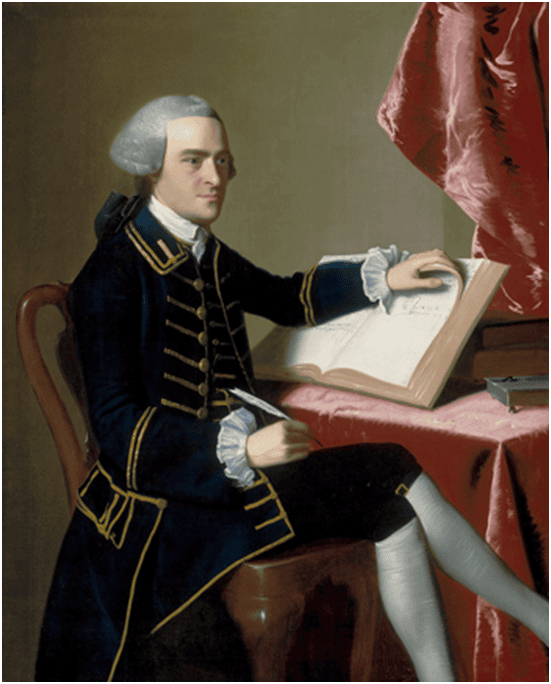
- The American Enlightenment took place in the 18th century among thinkers in British North America and the early United States, drawing inspiration from the British and French Enlightenments.
- This intellectual movement played a crucial role in sparking the American Revolution and shaping the foundations of the American Republic.
- By metaphorically bringing light to the Dark Age, the Enlightenment fostered a shift away from absolute authority—whether religious or political—towards more skeptical and optimistic views on human nature, religion, and politics.
- In the American context, influential figures such as Thomas Paine, James Madison, Thomas Jefferson, John Adams, and Benjamin Franklin developed and embraced revolutionary ideas about scientific rationality, religious toleration, and experimental political organization. These concepts would profoundly impact the nascent nation.
- Some thinkers combined science and religion through deism, while others emphasized the natural rights of individuals within the anti-authoritarian framework of liberalism. Additionally, early forms of republican thought highlighted the importance of virtue, enlightened leadership, and community.
- American Enlightenment thought was characterized by at least six key ideas:
- deism,
- liberalism,
- republicanism,
- conservatism,
- toleration, and
- scientific progress.
- While many of these ideas were shared with European Enlightenment thinkers, they also took on distinctively American forms in certain instances.
Pre- and Post-Revolutionary America and the Enlightenment
The period before and after the American Revolution created an environment where Enlightenment ideas could flourish, similar to what happened during the European Enlightenment.
Before the Revolution
- Americans were frustrated with King George III's misrule, Parliament's unfairness (not allowing taxes without representation), and the harsh treatment from the English Empire.
- Thomas Paine, a revolutionary Englishman, wrote The Rights of Man, criticizing how the North American colonies were treated by England.
After the Revolution
- A new generation of American thinkers established a government based on liberal and republican principles, expressed in important documents like the Declaration of Independence, the Federalist Papers, and the United States Constitution.
- While there were unique aspects to the American Enlightenment in the 18th century, it was largely in line with similar experiences in Britain and France.
Four Recurring Themes in European and American Enlightenment
- Modernization: The Enlightenment period witnessed a shift from beliefs and institutions grounded in absolute moral, religious, and political authority, such as the divine right of kings and the Ancien Régime, towards those based on science, rationality, and religious pluralism.
- Skepticism: Enlightenment thinkers, particularly the French philosophes like Voltaire, Rousseau, and Diderot, exhibited skepticism towards appeals to miraculous and supernatural forces, questioning their role in limiting individual choice and reason.
- Reason: The concept of reason, seen as a universally shared trait defining human nature, was a dominant theme in the writings of Enlightenment thinkers. This was especially evident in Immanuel Kant’s"What is Enlightenment?" and his Groundwork of the Metaphysics of Morals.
- Liberty: The theme of liberty and rights was central to theories of political association, particularly as limits on state authority that existed before the formation of states. This was evident in social contracts, notably in John Locke’s Second Treatise on Civil Government and Thomas Jefferson’s drafts of the Declaration of Independence.
Six Key Ideas of American Enlightenment
At least six ideas came to punctuate American Enlightenment thinking: deism, liberalism, republicanism, conservatism, toleration and scientific progress.
Many of these were shared with European Enlightenment thinkers, but in some instances took a uniquely American form.
Deism
- European Enlightenment thinkers conceived tradition, custom and prejudice as barriers to gaining true knowledge of the universal laws of nature.
- The solution was deism or understanding God’s existence as divorced from holy books, divine providence, revealed religion, prophecy and miracles; instead basing religious belief on reason and observation of the natural world.
- Deists appreciated God as a reasonable Deity.
- God created the universal laws that govern nature, and afterwards humans realize God’s will through sound judgment and wise action.
- Rather than fight members of the Catholic faith with violence and intolerance, most deists resorted to the use of tamer weapons such as humor and mockery.
- Both moderate and radical American Enlightenment thinkers, such as James Madison, Benjamin Franklin, Alexander Hamilton, John Adams and George Washington, were deists.
- Many subscribed to the populist version of deism advanced by Thomas Paine in The Age of Reason.
- Franklin was remembered for stating in the Constitutional Convention that “the longer I live, the more convincing proof I see of this truth— that God governs in the affairs of men.”
- In what would become known as the Jefferson Bible, Jefferson chronicles the life and times of Jesus Christ from a deist perspective, eliminating all mention of miracles or divine intervention.
- God for deists such as Jefferson never loomed large in humans’ day-to-day life beyond offering a moral or humanistic outlook and the resource of reason to discover the content of God’s laws.
- But American deists did not deny God’s existence, largely because the majority of the populace still remained strongly religious, traditionally pious and supportive of the good works (for example monasteries, religious schools and community service) that the clergy did.
Liberalism
- Liberalism, a key idea in American Enlightenment thinking, emphasizes that humans have natural rights and that government authority is based on the will and consent of the governed, not absolute power.
- Unlike radical doctrines, liberalism is rooted in the commercial harmony and tolerant Protestantism of Northern European merchants, particularly in Holland and England.
- Liberals prioritize the interests of the middle class over the aristocracy, advocating for tolerant pluralism that does not discriminate based on race or creed. They support a legal system that protects private property rights and promotes individualism over collectivism.
- The belief in God-given rights to property,life,liberty, and the pursuit of one's conception of the good life, as articulated by John Locke and reflected in Thomas Jefferson's drafting of the Declaration of Independence.
- The U.S. Bill of Rights, the first ten amendments to the Constitution, enshrines individual rights such as free speech,religious liberty,the right to bear arms, and habeas corpus, embodying the liberal ideal.
Republicanism
- The American Enlightenment, influenced by the European Enlightenment, advocated for governance as a republic where the head of state is elected by the people rather than through hereditary succession.
- As North American colonists grew increasingly disillusioned with what they perceived as corrupt British rule, they organized militias and ultimately established the American Continental Army under the leadership of George Washington.
- Thomas Jefferson's vision of the yeoman farmer, akin to the Roman ideal, depicted the 18th-century American as a diligent farmer and a citizen-soldier committed to the republic.
- When George Washington was elected to the highest office in the land, he famously declined a royal title, opting instead for the more republican title of President.
- Republican ideas significantly shaped American Enlightenment thought.
Conservatism
- Although the Enlightenment is often linked with liberalism and republicanism, a notable current of conservatism emerged in its final phase, primarily as a response to the excesses of the French Revolution.
- In 1790,Edmund Burke foresaw the breakdown of order and civility in French society post-revolution in his work Reflections on the Revolution in France.
- While some argue that Burkean conservatism was a reaction against the Enlightenment, conservatives operated within the Enlightenment framework.
- Enlightenment beliefs about human nature were reexamined and shown to falter when applied broadly to human culture.
- For example, the Enlightenment's faith in universal human rights declarations could be detrimental when they clash with the customs and traditions of specific nations, regions, or communities.
- Similar to classical republicans, Burke believed that human personality is shaped by life in a political society, not by a set of natural rights that predetermine social and political relations.
- Conservatives critiqued the idea of a social contract as a fictional construct that ignored the diversity of groups and viewpoints in society, making universal consent unfeasible.
- Burke advocated for a moderated version of Enlightenment values rather than a complete rejection of them.
- Conservatism was a prominent aspect of American Enlightenment thought.
- While Burke criticized the French Revolution, he supported the American Revolution for overthrowing English colonial misrule while creatively adapting British traditions and institutions to suit the American context.
- American Enlightenment figures like James Madison and John Adams shared views that resonated with Burkean conservatism, leading them to critique the rise of revolutionary France and the pro-French Jacobin clubs during and after the French Revolution.
- In the forty-ninth Federalist Paper, Madison presented a conservative argument against frequent appeals to democratic republics on constitutional matters, arguing that they could jeopardize political stability.
- Madison's conservative stance contrasted with Jefferson's liberal perspective, which advocated for convening a constitutional convention every twenty years, asserting that “the earth belongs to the living generation,” and each new generation should have the authority to re-evaluate its constitutional principles.
Toleration
- Tolerance of difference emerged alongside early liberalism among Northern Europe’s merchant class.
- This tolerance was rooted in the belief that hatred or fear of different races and creeds hindered economic trade, suppressed freedom of thought and expression, damaged international friendships, and led to persecution and warfare.
- Exhausted by religious wars, European Enlightenment thinkers envisioned a future where enlightened reason, rather than religious dogma, would guide interactions among people of diverse faiths.
- American thinkers adopted this principle of tolerant pluralism from their European Enlightenment predecessors.
- Influenced by Scottish Enlightenment ideas, American Calvinists established open and tolerant institutions, such as secular public schools and democratically organized religions.
- Many American Enlightenment figures, including Benjamin Franklin,Thomas Jefferson, and James Madison, supported John Locke’s ideas in A Letter Concerning Toleration.
- Locke contended that governments are not suited to judge conflicting religious beliefs and that faith cannot be forced; attempts to do so lead to greater discord.
- He advocated for civil government to protect liberty of conscience, allowing individuals to worship as they choose and preventing the establishment of a state church.
- For the founders of America, the new nation was to be a place where people of all faiths or no faith could live and prosper together without fear of persecution from the government or fellow citizens.
- Benjamin Franklin believed that religion fostered virtue, prompting him to donate to every church in Philadelphia.
- In 1777, Thomas Jefferson drafted a bill for Virginia to disestablish the government-supported Anglican Church, which later influenced the Religion Clauses of the First Amendment, with the support of James Madison.
Scientific Progress
- The Enlightenment's excitement for scientific discovery was closely linked to the rise of deism and growing skepticism towards traditional religious beliefs.
- Deists pursued scientific research not just out of intellectual curiosity, but also as a divine使命to uncover God's natural laws.
- New scientific knowledge, like the shift away from the geocentric model by Copernicus, Kepler, and Galileo, as well as Newton's laws of gravity, reduced the need for a God who constantly intervenes in the world.
- Following the publication of Sir Isaac Newton's Principia in 1660, trust in scientific advancement took formal shape in institutions like the Royal Society of England, the Académie des Sciences in France, and later the Academy of Sciences in Germany.
- In pre-revolutionary America, scientists, or natural philosophers, were part of the Royal Society until 1768. That year, Benjamin Franklin played a key role in establishing the American Philosophical Society and became its first president.
- Franklin gained fame as one of the leading American scientists during the Enlightenment due to his numerous practical inventions and his theoretical investigations into the properties of electricity.
American Enlightenment Thinkers
Thomas Paine
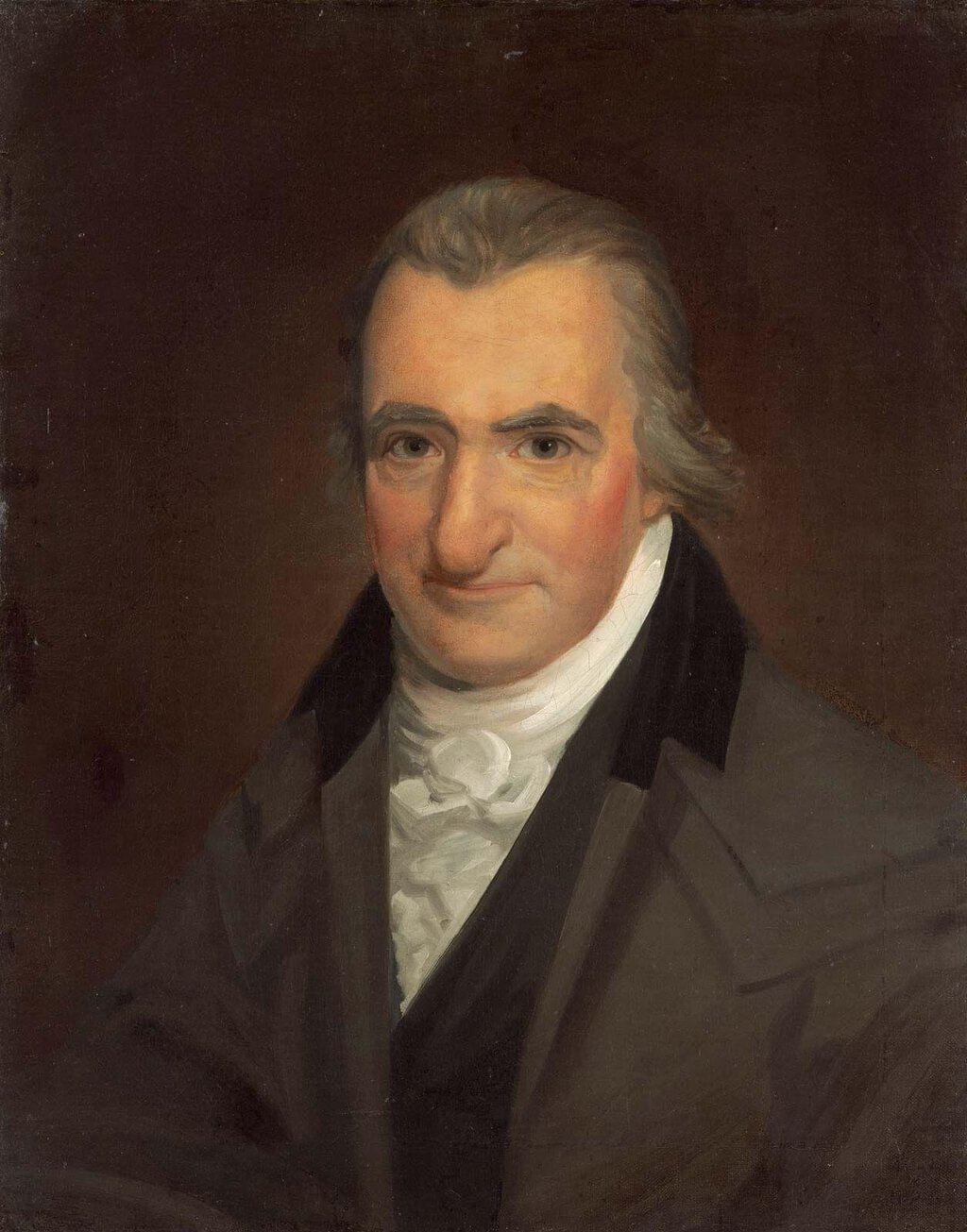
- Thomas Paine was a political thinker and writer born in England who supported revolutionary movements in both America and Europe.
- In 1776, he published “Common Sense,” the first pamphlet to advocate for American independence, which gained international recognition.
- “Common Sense” played a vital role in persuading colonists to fight against England, arguing that representational government is better than monarchy or aristocracy.
- The pamphlet was so impactful that John Adams allegedly said, “Without the pen of the author of ‘Common Sense,’ the sword of Washington would have been raised in vain.”
- After writing “The American Crisis” papers during the Revolutionary War, Paine returned to Europe and defended the French Revolution in “Rights of Man.”
- “Rights of Man,” published in 1791 and 1792, was a response to Edmund Burke’s criticism of the French Revolution. Paine traveled to Paris to oversee a French translation of the book in 1792.
- Paine’s political beliefs led to imprisonment, and after his release, he wrote “The Age of Reason,” a critique of organized religion and Christian theology.
- The Age of Reason, published in 1794,1795, and 1802, advocated for reason and scientific inquiry over organized religion, with the first volume criticizing Christian theology and the second analyzing the Bible.
Benjamin Franklin
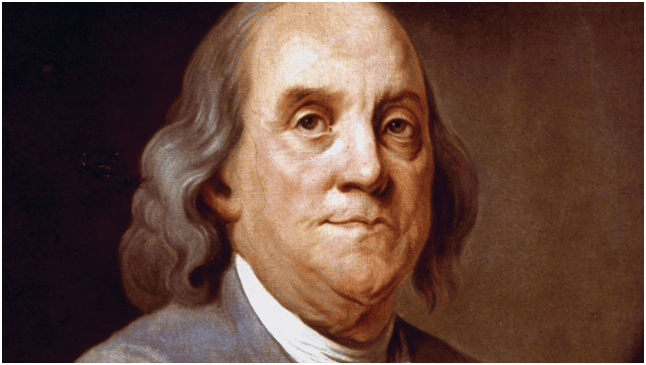
- Benjamin Franklin was a multifaceted figure in American history—an author, printer, scientist, and statesman. He played a crucial role during a challenging time in colonial politics, the revolutionary war, and the founding of the nation.
- In his Autobiography, Franklin praised the values of thrift, hard work, and wealth accumulation.
- He believed that the pursuit of material wealth is only virtuous when it aligns with promoting the public good through philanthropy and volunteerism, a concept known as "enlightened self-interest."
- Franklin advocated for the use of reason, free trade, and a cosmopolitan outlook as essential for fostering peaceful relations between nations.
- He viewed independent entrepreneurs as valuable citizens within a nation-state because they set "attainable goals" and lead "useful and dignified lives."
- In his quest for "moral perfection," Franklin proposed cultivating thirteen virtues, including temperance, silence, order, and humility.
- He preferred voluntary associations over government institutions to channel individualism and private pursuits into beneficial social activities.
- Franklin not only encouraged the formation of these associations but also actively founded and participated in many.
- He was a strong proponent of federalism, criticized narrow localism, and championed religious freedom.
Thomas Jefferson
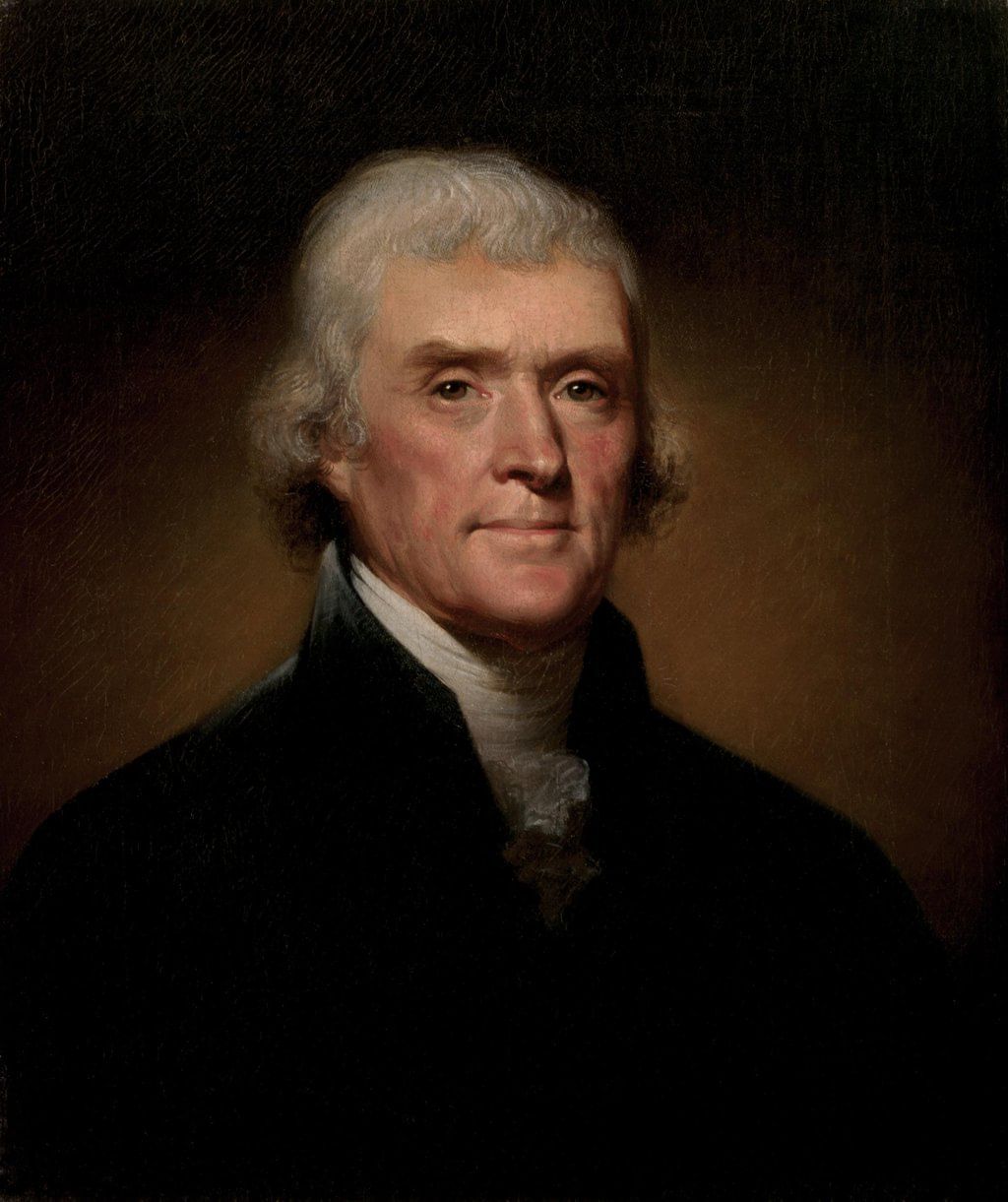
- Thomas Jefferson was a statesman, scientist, and diplomat from Virginia, renowned for drafting the Declaration of Independence.
- He replaced "property" with "pursuit of happiness" in Locke's list of natural rights, aligning with Benjamin Franklin to broaden the scope of human ends.
- Jefferson significantly influenced the U.S. Constitution through his correspondence with James Madison during the 1787 Constitutional Convention while he was in Paris.
- He viewed the Declaration as a measure of the colonists' resolve to separate from Britain and saw the Philadelphia Convention as an experiment in establishing a new constitutional framework.
- Jefferson believed that laws and institutions should evolve alongside human progress, emphasizing that constitutions are living documents that adapt to changes in thought, discovery, and societal norms.
James Madison: The Father of the Constitution
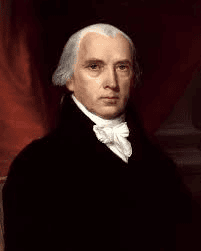
- James Madison, known as the "Father of the Constitution," was a key figure in shaping the U.S. Constitution. He was not only a politician but also a man of letters, a scientist, and a diplomat, leaving a significant impact on American thought.
- Madison played a crucial role in advocating for the ratification of the Constitution. He, along with John Jay and Alexander Hamilton, authored The Federalist Papers, where he presented his most important ideas.
- Two of Madison's key ideas from The Federalist Papers are:
- Large Republic Thesis: This idea argues that a large republic can better control factions and prevent any single group from dominating.
- Separation of Powers and Checks and Balances: Influenced by the French philosopher Montesquieu, Madison emphasized the need for different branches of government to check and balance each other’s powers.
- In Federalist Paper No. 10, Madison addresses the issue of factions, or groups with shared interests, which he believed were inevitable and potentially harmful to republican government. He argued that trying to eliminate factions would infringe on individual liberty.
- Madison proposed that when factions arise within the government, a system of checks and balances would help mitigate their negative impact. This idea, originally put forth by John Adams, suggests that each branch of government should have a role in overseeing the others, ensuring that "ambition must be made to counteract ambition."
John Adams
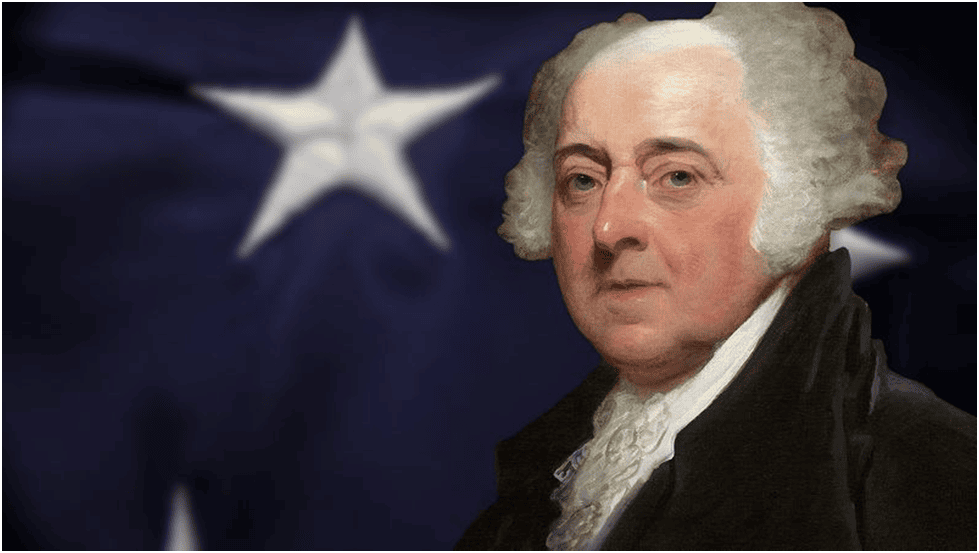
- John Adams was a founding father, statesman, diplomat, and later President, who played a significant role in shaping American Enlightenment thought.
- Among his political writings, three are particularly notable:
- Dissertation on the Canon and Feudal Law(1776),A Defense of the Constitutions of Government of the United States of America Against the Attack of M. Turgot(1787-8), and Discourses on Davila(1791).
- In the Dissertation, Adams criticizes Great Britain for imposing canon and feudal law, which he views as tyrannical systems, on the North American colonies. He argues that this led to the cessation of elections, feelings of enslavement among British subjects, and ultimately, the inevitability of revolution.
- In the Defense, Adams staunchly defends republicanism against Turgot's support for centralized government. He emphasizes the need for separation of powers and checks and balances to protect individual liberty and prevent the concentration of state power, while also advocating for a strong executive branch to guard against aristocratic threats to the masses' liberty.
- In the Discourses, reflecting Enlightenment conservatism, Adams critiques the idea of unrestricted popular rule or pure democracy. He believes that government should curb human tendencies to seek personal power and reputation. He states that government is meant to regulate passions and aid reason, conscience, justice, and truth in managing interests that would otherwise be unchecked and unjust.
Japanese Enlightenment
- During the Meiji Restoration, concepts from English and French civil society were introduced, including utilitarianism from England and popular sovereignty from Jean-Jacques Rousseau of France.
- Early Meiji thinkers criticized traditional Japanese authority and feudalism but eventually aligned with the government, accepting modernization without radical changes.
- Mori Arinori established Meirokusha in 1873, promoting practical learning and national education as Minister of Education.
- Fukuzawa Yukichi brought British utilitarianism to Japan, emphasizing natural rights and the development of human spirit.
- Itagaki Taisuke advocated for an elected legislature and was a key figure in the Freedom and People’s Rights Movement.
- Prince Yamagata was instrumental in organizing the modern Japanese army and forging the Empire, while Count Ito is considered the father of the Japanese constitutional system, influenced by Bismarck.
- Count Okuma, a supporter of the constitutional movement, founded the Progressive Party and advocated for gradual reforms.
- Nakae Chomin argued for people’s sovereignty and individual freedom, emphasizing the importance of parliamentary monarchy.
- Yoshino Sakuzo advocated for party cabinet politics and popular election, while Minobe Tatsukichi interpreted sovereignty as belonging to the state rather than the emperor.
- Hiratsuka Raicho founded Seitosha in 1911, promoting women’s awakening and the development of the feminist movement.
The Transformation of Japan (1853-1894)
Feudal Japan and the Shogunate
- Japan was a feudal state during this period, with the Emperor serving mainly as a symbolic figurehead.
- The real power was held by the Shogun, initially the chief officer of the Emperor, who had managed to consolidate power and control over the state.
Opening to the West
- In 1853, Japan, which had been in strict seclusion, was forced open by the United States when the US Navy arrived in Japanese waters. The US demanded protection for American sailors and the right for American ships to dock in Japanese ports.
- Japan was compelled to sign a treaty that opened two ports to American ships. By 1867, nearly all European nations had signed treaties with Japan, securing commercial rights, open ports, extra-territorial rights, and control over tariffs.
The Meiji Restoration
- The foreign opening of Japan sparked an anti-foreign movement that escalated into a push to abolish the Shogunate, which was blamed for allowing foreign influence.
- Many feudal lords, driven by strong anti-foreign sentiments, called for the restoration of power to the Emperor. In 1867, the Shogunate was abolished, and imperial authority was restored, marking the beginning of the Meiji era.
Internal Reconstruction of Japan
- Centralization of Authority: The abolition of the Shogunate marked the beginning of centralized authority, which was crucial for the state. The next step involved the abolition of feudalism.
- Abolition of Feudalism: Feudal lords voluntarily surrendered their fiefs to the Emperor, becoming ordinary subjects under the law. The Samurai class also relinquished their privileges. This swift and selfless change abolished feudalism, paving the way for a nationally organized state.
- National Army: With the end of feudalism, the privilege of fighting was no longer confined to the Samurai. A national army was established, recruiting from all sections of society.
- Social Changes: The nationalization of the army brought about significant social changes. The distinction between the warrior class and commoners vanished, making everyone equal in the eyes of the law.
Westernization of Japan
- Japan observed the developments in Western Europe and adopted their institutions and technology.
New Constitution
- A new constitution was created based on the Prussian model, with the Emperor as the head of state and a representative assembly featuring two houses. This system struck a balance by avoiding excessive democracy while allowing talent from all classes to contribute to the nation.
New Code of Law
- New legal codes were established based on French and Prussian models. Objectionable practices from old laws, such as torture, were abolished. Japan aimed to eliminate extraterritoriality through these new codes.
Progress of Education
- Compulsory elementary education was introduced for both boys and girls. Universities and technical schools were established along Western lines under state supervision, with a focus on vocational education. Foreign teachers were invited, and English became a mandatory subject in schools.
Army and Navy
- The army was nationalized, reorganized on Prussian lines, equipped with modern weapons, and compulsory military service was introduced.
- Efforts were made to build a navy based on British standards.
Economic Progress
- In a remarkably short period, Japan developed railways, telegraphs, postal facilities, steamship services, and enhanced its mining and industrial sectors with machinery and large-scale production. Currency was reformed, the banking sector was developed, and international commerce increased significantly.
- By 1894, Japan had largely completed its transition from a feudal state to a modern nation, marking the end of the period that began in 1853.
|
367 videos|995 docs
|
FAQs on Spread of Enlightenment in the Colonies - History Optional for UPSC
| 1. What are the key ideas of the American Enlightenment? |  |
| 2. Who were some prominent thinkers of the American Enlightenment? |  |
| 3. How did the Japanese Enlightenment differ from the American Enlightenment? |  |
| 4. What was the impact of the transformation of Japan between 1853 and 1894? |  |
| 5. How did the Enlightenment ideas spread in the American colonies? |  |















